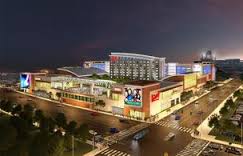As you’ve read here earlier, the Massachusetts Gaming Commission is eyeing the concept of “play management.” It’s a somewhat paternalistic concept wherein players  pre-set a loss limit and are rewarded with free-play credits, points or other incentives for staying within that limit. “It’s to let people go to casinos and enjoy themselves instead of walking out with that horrific feeling of regret because they spent more than they wanted to,” rationalized MGC consultant Judith Glynn. MGC Chairman Stephen Crosby adds that it targets “maybe 10 percent to 20 percent” of players. The American Gaming Association is pushing back, bombarding the MGC with a four-page letter which, among other arguments, says that it’s “disproportionate to the scope of problem gambling in Massachusetts.” The AGA also makes the intriguing contention that pre-setting a limit on one’s losses could tempt players to wager more than they might otherwise. I can see that. It also argues that, once the novelty of casino gaming wears off, so does the prevalence rate of problem gambling. I’ll admit I’d like to see the research on the latter argument, but the AGA has access to more and better data than does S&G.
pre-set a loss limit and are rewarded with free-play credits, points or other incentives for staying within that limit. “It’s to let people go to casinos and enjoy themselves instead of walking out with that horrific feeling of regret because they spent more than they wanted to,” rationalized MGC consultant Judith Glynn. MGC Chairman Stephen Crosby adds that it targets “maybe 10 percent to 20 percent” of players. The American Gaming Association is pushing back, bombarding the MGC with a four-page letter which, among other arguments, says that it’s “disproportionate to the scope of problem gambling in Massachusetts.” The AGA also makes the intriguing contention that pre-setting a limit on one’s losses could tempt players to wager more than they might otherwise. I can see that. It also argues that, once the novelty of casino gaming wears off, so does the prevalence rate of problem gambling. I’ll admit I’d like to see the research on the latter argument, but the AGA has access to more and better data than does S&G.
Another measure being contemplated by the MGC would restrain the debt-collection measures to which casinos could resort, inspired by some of the excesses of Foxwoods Resort Casino and Mohegan Sun. Casinos would be forbidden from placing liens on the homes of debtors. The MGC has debated the potential new rule but not acted on it yet.
* “All they’ve done is created a monopoly for Parx [Casino], with one in Bucks County and one in South Philly, which will squeeze out SugarHouse. It’ll kill Harrah’s Chester. It’s just unbelievable. It’s shocking that they would choose another crappy slots-in-a-box project.” That’s rejected Philadelphia casino applicant Bart Blatstein, mincing no words about a second Philadelphia-area license to the biggest operator in the state. Although five votes were needed for passage, the choice was unanimous.
For its part, the Pennsylvania Gaming Control Board thought Blatstein and Isle of Capri Casinos‘ Provence project would create vehicular havoc in downtown Philly. Ease of access was one reason they went with the Greenwood Racing/Cordish Gaming proposal, Live! Hotel & Casino. Its proximity to the city’s sports-stadium complex was also a plus factor. “This will be the only example in the country of having a casino-hotel complex with every major sport represented in terms of baseball, football, basketball, hockey, all in one destination,” said Cordish President Joseph Weinberg.
 The Cordish/Greenwood strategy is to use its 240-room hotel to leverage daytripping sports fans or concert goers into multi-night customers. “The longer you keep people and the more you can have people stay overnight, that creates an exponential increase in expenditures in the market,” explained Weinberg, whose company’s revenue projections were actually the lowest of the four contenders.
The Cordish/Greenwood strategy is to use its 240-room hotel to leverage daytripping sports fans or concert goers into multi-night customers. “The longer you keep people and the more you can have people stay overnight, that creates an exponential increase in expenditures in the market,” explained Weinberg, whose company’s revenue projections were actually the lowest of the four contenders.
Market8, Casino Revolution and Provence didn’t meet the PGCB’s criterion of “a realistic and rightsized applicant, especially in a highly competitive market as in Philadelphia … Being rightsized, not overbuilt or heavily laden with debt* would ensure that in a competitive gaming market, [Live!] could operate a successful gaming operation and would be in a position to service any debts, make capital improvements, and reinvest in its facility.” The reaction of area residents was about as divided as you’d expect it to be. It wouldn’t be a casino if it didn’t bring controversy with it.
*–Live! will be only 50% leveraged.
Ownership of Live! Hotel & Casino is so elaborately divided you need a scorecard. But for the moment, Greenwood Racing can take a victory lap, its mojo regained after being passed over for a slot parlor in Massachusetts and a casino in Maryland. The Philadelphia Inquirer boils down Greenwood’s endgame into one subclause: “the chance to protect its majority slice of the $1.14 billion gambling market in the immediate Philadelphia region.” Mission accomplished.
* An onslaught of new casino product in Macao and a shortage of dealers add up to a crisis for operators and an opportunity for manufacturers. The answer? Electronic table games.


Sugar House is toast! It really offers nothing.
David Cordish is not looking very good.